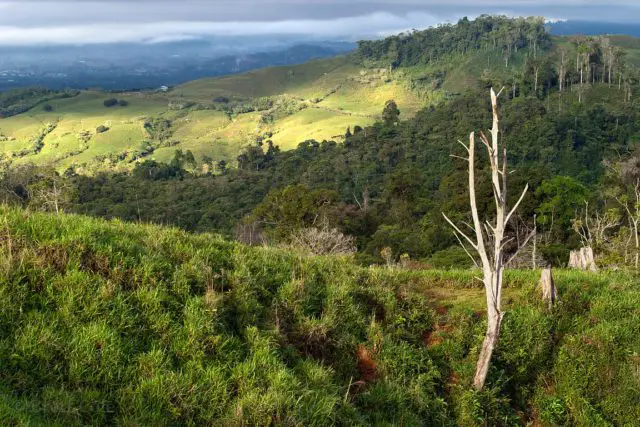Costa Rica would house more species of flora and fauna than previously believed, which poses a greater potential for ecotourism, industry, health and foreign investment, according to researchers from the National University (UNA).
And it is that today, it is estimated that 6% of the planet’s biodiversity is found in national territory, while in 2014 scientists estimated that it was barely 4.7%. Best of all, is that the number would continue to grow, as new species of insects, microorganisms and others are discovered.
In 1992, the expected total number of species was 500 thousand, while 30 years later, the record has doubled, according to the compilation of the “Biodiversity in figures” project.
Systematizing the Bio-inventory
“We are making an inventory that consists of systematizing, through workshops and meetings, in addition to searching for literature, since some species were discovered by people who live outside the country and publish it. We also contact different specialists and in the end we can determine a number,” said Tania Bermúdez, a biologist specializing in conservation and one of those responsible for the project.
The initiative began as a pilot plan in 2018 when Vilma Obando, a biologist who worked at INBio, proposed to continue with the work of inventorying species at UNA.
In Costa Rica there is good information on groups such as vertebrates, mammals, reptiles, birds and plants, but there are groups that are extremely complex and there is almost no information, such as microorganisms and marine invertebrates; furthermore, the group of insects is a gigantic list.
Great knowledge of our biodiversity
“When we get lists of insects and microorganisms, and we have a base number, it will grow much more. I think we are one of the best countries that have knowledge of our biodiversity,” added Bermúdez.

Important work on the subject of insects is being carried out in Guanacaste thanks to the American biologist Daniel Janzen, with an immense project on data collection, which could be added to all the information from the UNA project.
This information is valuable not only for an inventory of species or managing figures, but also serves for decision-making at the country level, both at the political, industrial, tourism, conservation and climate change levels, and often allows the country to access resources non-refundable from abroad. For example, there is immense potential in the species of microorganisms, since the pharmaceutical and health industries have great potential for investment and growth.
Swapping debt for conservation
“In tourism, totally clear, at the international political level it helps debt swaps and that money reaches the country not only for conservation, but also in the industry, at the educational level and in the health part; Knowing about biodiversity is not just tourism, but it goes beyond, if seen from a commercial point of view, although it shouldn’t be, but we live from the country’s biodiversity, thanks to this we have a very important income of foreign exchange, for That is why this issue is essential for decision-making,” explained Bermúdez.

